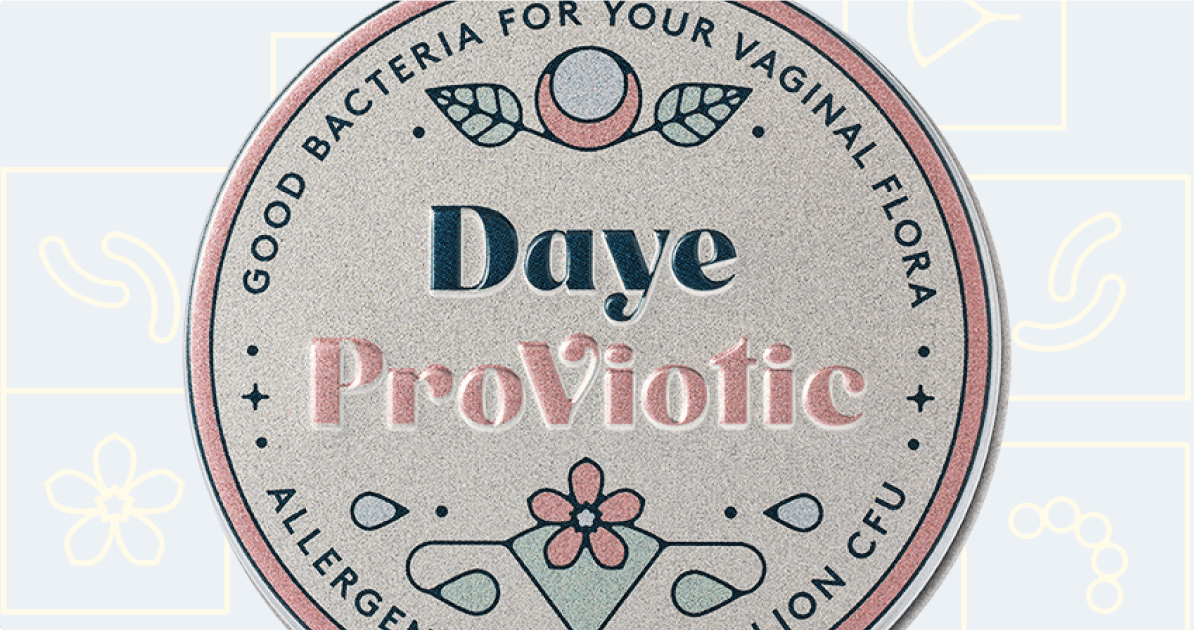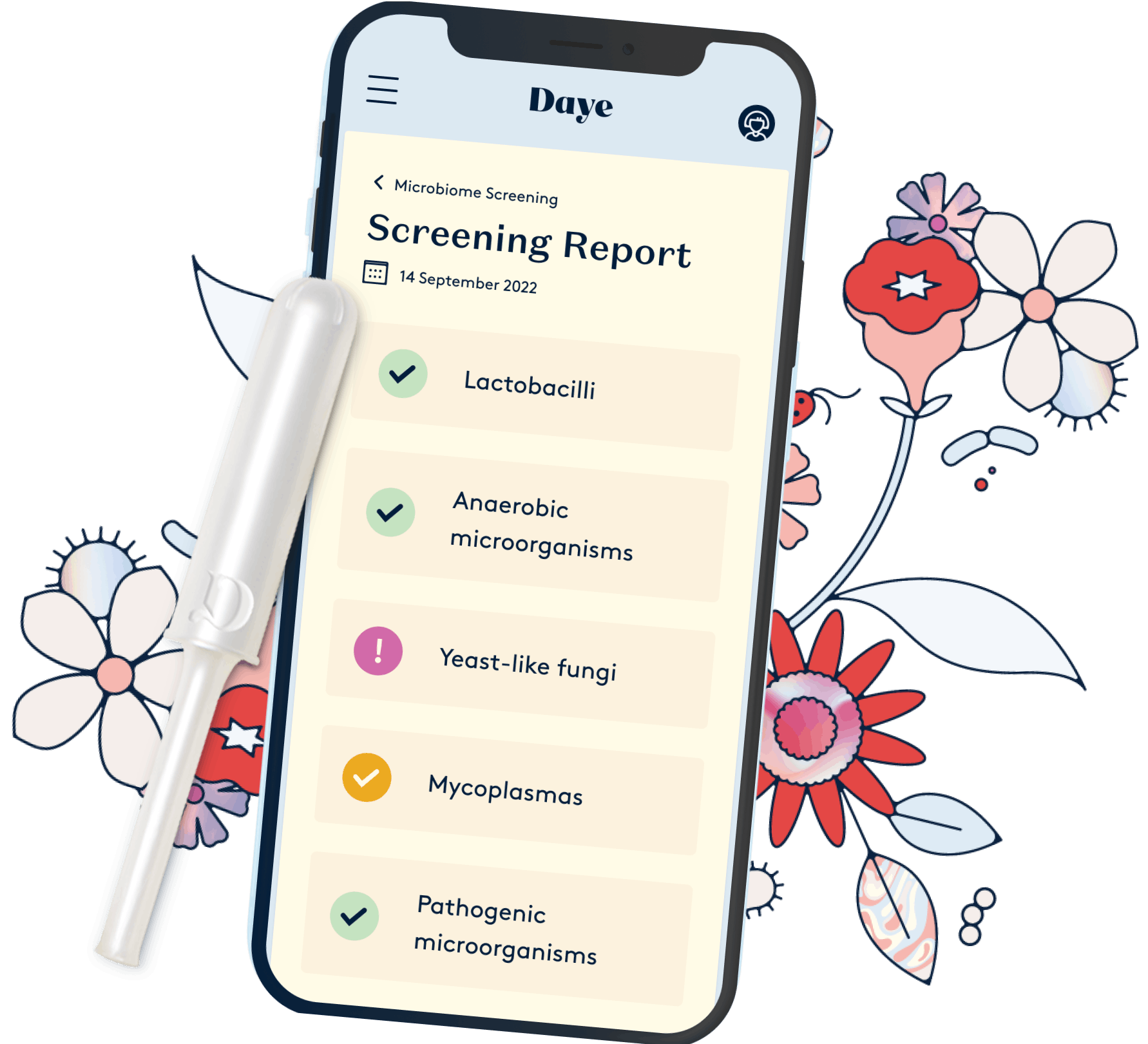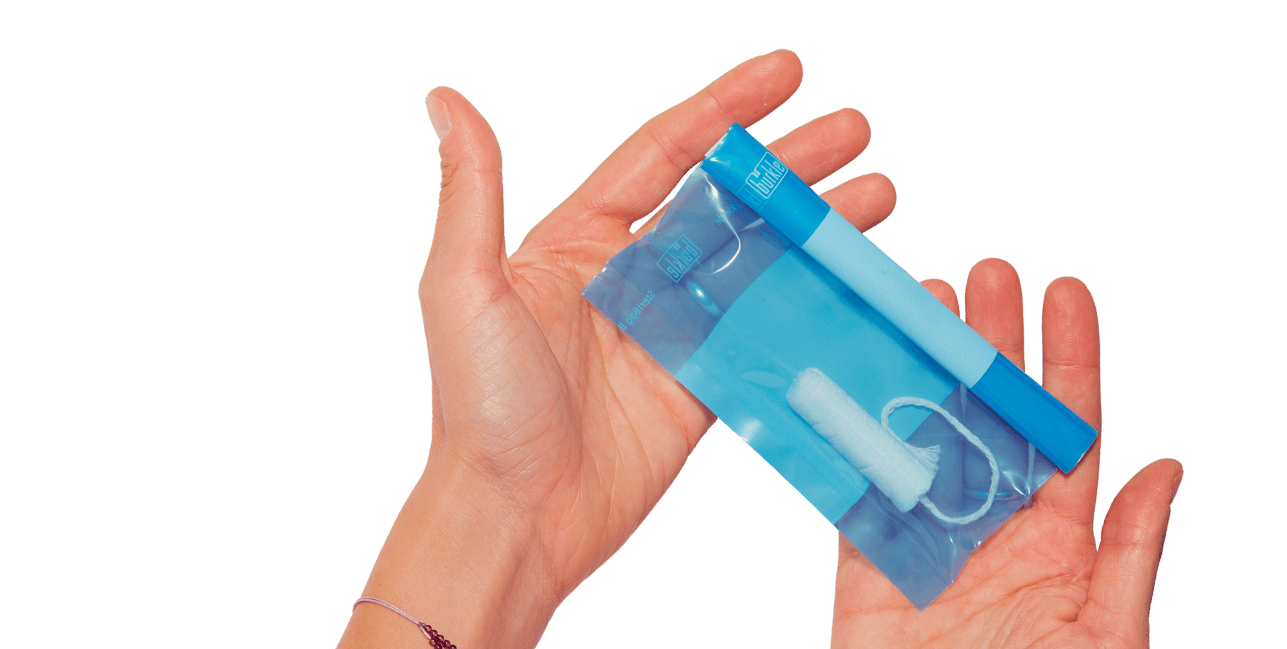Your basket
Your basket is currently empty.
Tampon Case
£-1
ProViotics
£-1






 Having a healthy and balanced microbiome is important for the successful fertilization, implantation and embryo development. It is thought to reduce antisperm immunity — an immune system which attacks sperm.Dr. Zahra Ameen
Having a healthy and balanced microbiome is important for the successful fertilization, implantation and embryo development. It is thought to reduce antisperm immunity — an immune system which attacks sperm.Dr. Zahra AmeenConsultant Obstetrician and Gynecologist
Wait, the vaginal micro-what?
The vaginal microbiome is the ecosystem of bacteria, yeasts and other microorganisms that live inside your vagina. When its balance is off, it’s vulnerable to infections and other gynecological health complications.

Why should I care?
A healthy vaginal microbiome is associated with:





Need more good bacteria in your life? Try Daye ProViotics
Freeze-dried with no nasties—just pure lactobacilli and carrot fibers.
Your friend in fertility

Introducing the Daye At-Home Vaginal Microbiome Screen
Understanding the balance of your vaginal microbiome is the first step towards taking control of your overall gynecological health.
Get a 360° look at your vaginal flora
lactobacilli
These are the good bacteria in your vaginal microbiome, responsible for warding off infections. Low numbers of them can predict different issues.Yeast-like fungi
Candida is a fungus which affects 75% of women. It is the most common cause of yeast infections.anaerobic bacteria
These microorganisms are the culprit behind infections like bacterial vaginosis (BV).Mycoplasma & ureaplasma
These are bacteria that can cause inflammation in the lower urogenital tract and, according to studies, can affect fertility.See our Founder’s results!
Wondering what we test for, and what results look like? Enter your email below and Valentina, our Founder, will send you her screening report.
By entering your email above you agree to receive marketing emails and promotions from Daye.
What happens next?
Our team of experts will make sure you’re never left feeling confused or in the dark.

results you understand
We’ll provide you with all the information you need to feel in control.
specialist consultations
Easily schedule virtual and real-life appointments with experts.

personalized support
We’ll recommend science-backed interventions for optimal vaginal heath.

Lifestyle hacks
Get a personalized list of health hacks to support your vaginal flora.

Take the guesswork out of gynecology. Get screened today.
Or subscribe to prophylactic gynecological care





